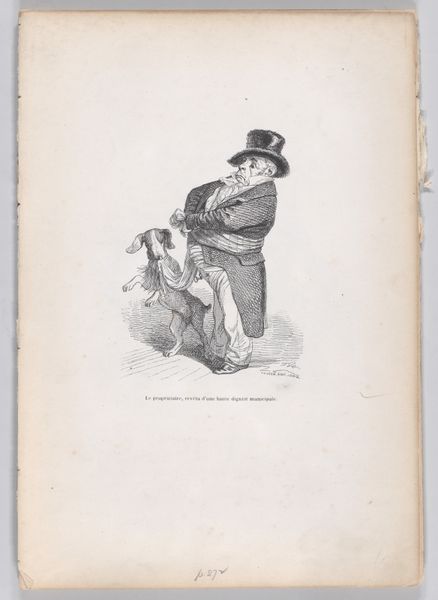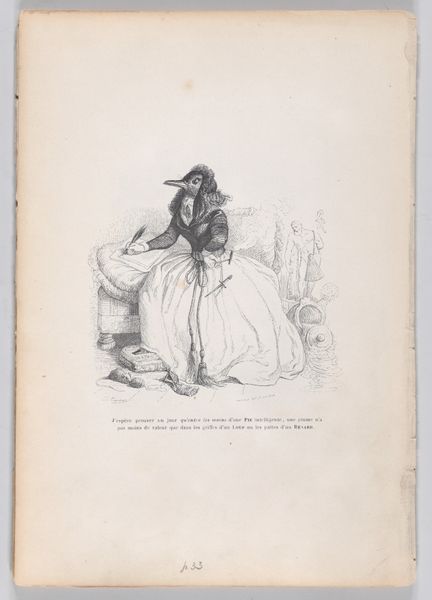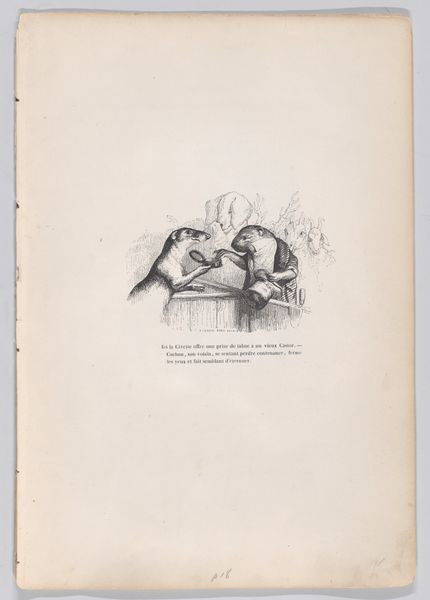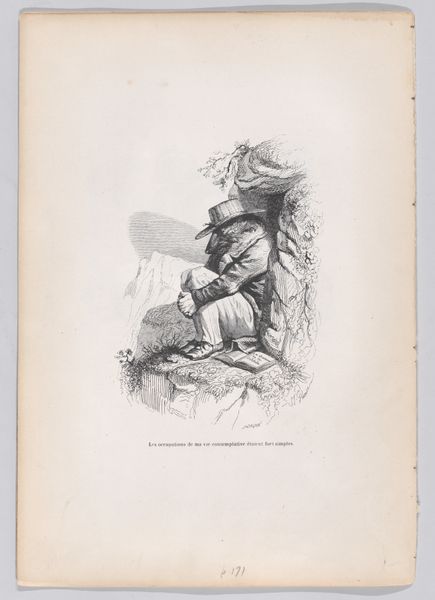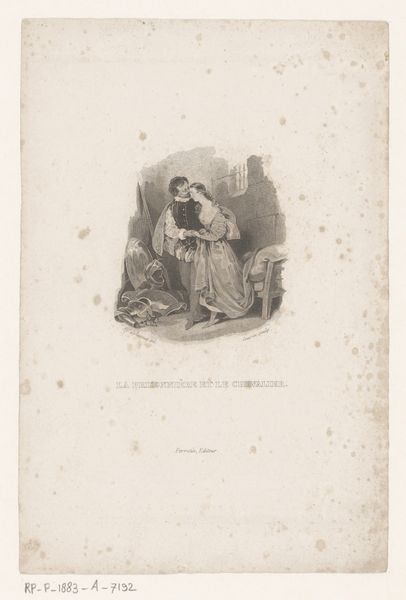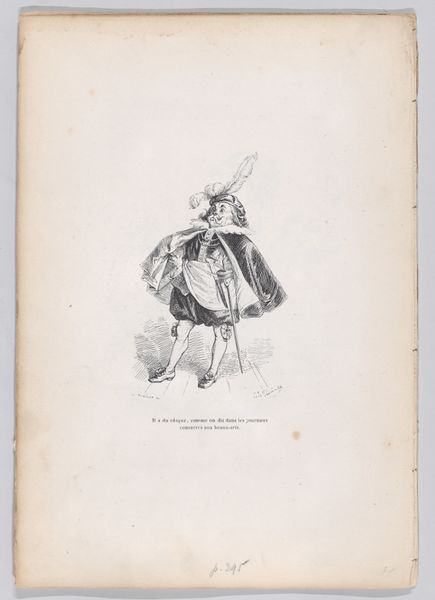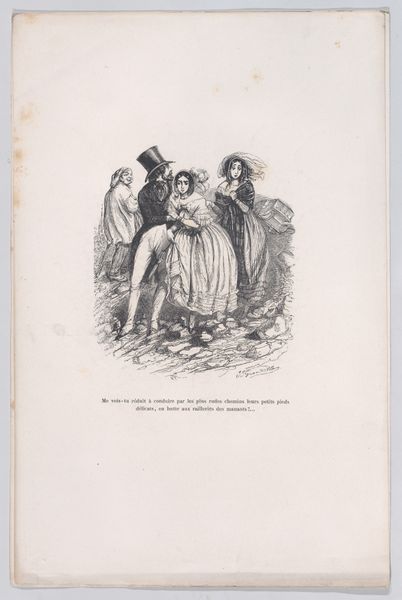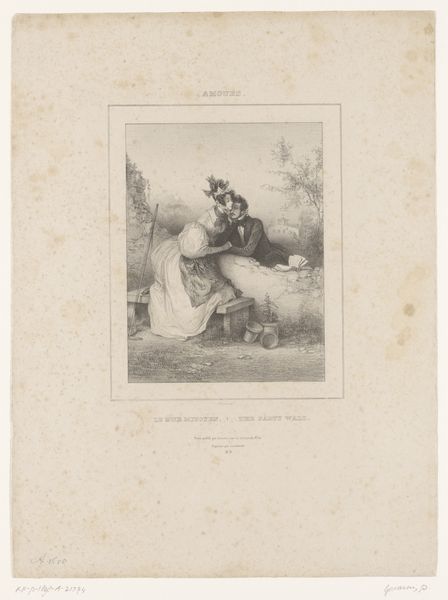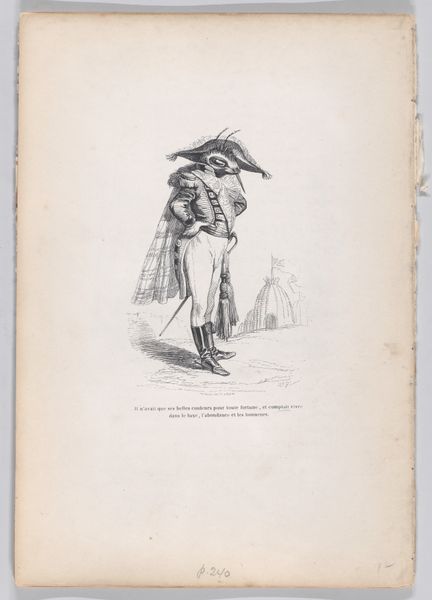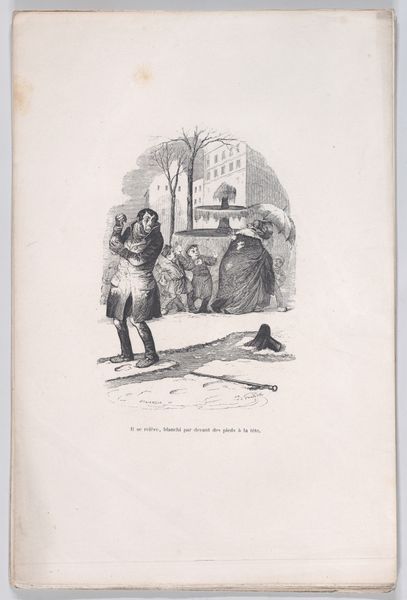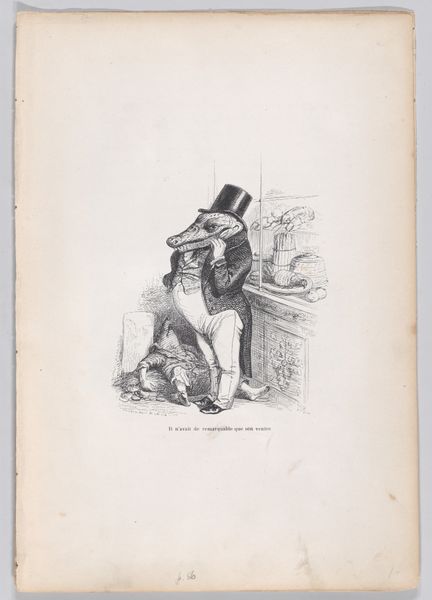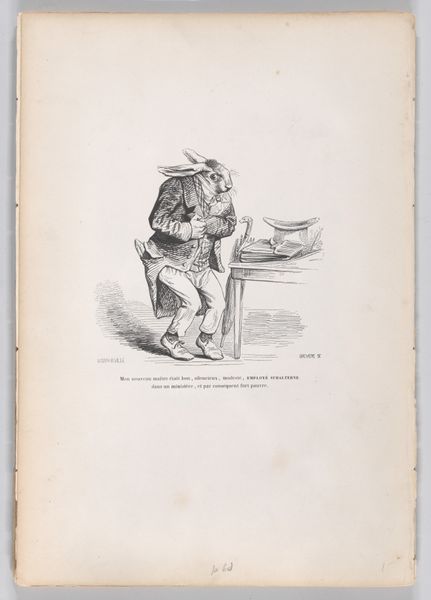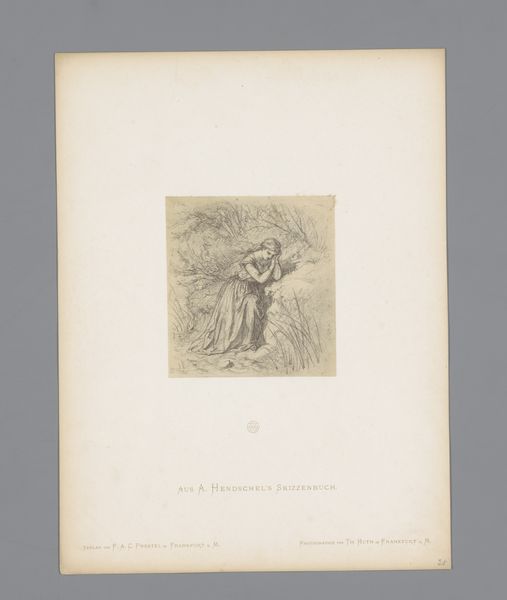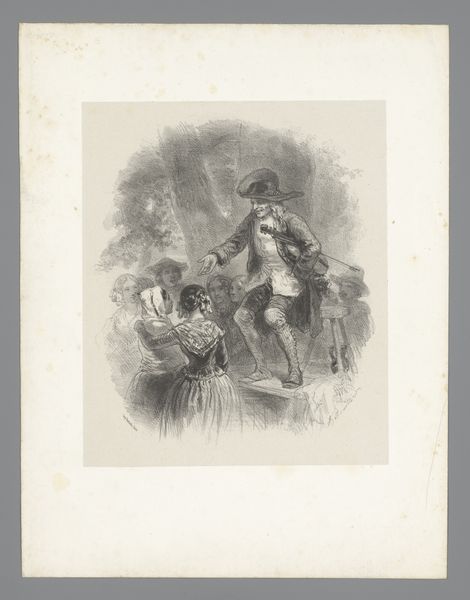
"I left as the Attorney-General of Moinraux in Paris" from Scenes from the Private and Public Life of Animals 1832 - 1852
0:00
0:00
drawing, print
#
drawing
# print
#
caricature
#
romanticism
#
genre-painting
Dimensions: Sheet: 10 3/8 × 7 3/16 in. (26.3 × 18.3 cm)
Copyright: Public Domain
Curator: The print before us, titled "I left as the Attorney-General of Moinraux in Paris," hails from J.J. Grandville's "Scenes from the Private and Public Life of Animals," dating from 1832 to 1852. Editor: Immediately striking! It's a blend of dapper and unsettling. The scale makes him feel very present, but the bird's head…it’s both humorous and slightly ominous. What do you make of it? Curator: Grandville, a master of Romantic caricature, uses anthropomorphism to satirize Parisian society. He held progressive political views and routinely mocked politicians. That animal head – it speaks volumes about the artist's attitude towards those in power. We have to remember the historical and social context. What was he critiquing about the legal system? Editor: The bird head seems significant – perhaps referring to a magpie with the figure being associated with avarice and a tendency to pilfer, the beak drawing focus to the smoke curling into the air and the figure smoking a cigarette as if calm amid disarray. Do you feel the hat indicates further imagery? Curator: Indeed. The symbolism of the clothing too—a certain social climbing is implied by this attorney figure. We see the romanticism echoed within a burgeoning Parisian underbelly. Class dynamics come into play in the work as well, I think. Editor: I completely agree, it's about hierarchies. Note the tools of his profession dangling; a sense of burdened fatigue alongside pride as the figure goes out into the city. Curator: Yes. And within this light we gain insight into Grandville's critique. How effectively, in your opinion, does Grandville marry political statement with visual metaphor? Editor: Very effectively! This piece manages to be both playful and deeply critical. The figure seems to embody an era – ambitious, corruptible, and perpetually in search of a perch from which to observe and profit. Curator: It also reveals the universality of the satire, doesn't it? Power structures, critique of politicians—themes that continue to resonate across time and cultures. It serves as a reminder to always critically asses these structures. Editor: Agreed. Ultimately, I am left pondering the continuity of such archetypes, across centuries, which is strangely comforting yet a challenge as well.
Comments
No comments
Be the first to comment and join the conversation on the ultimate creative platform.
